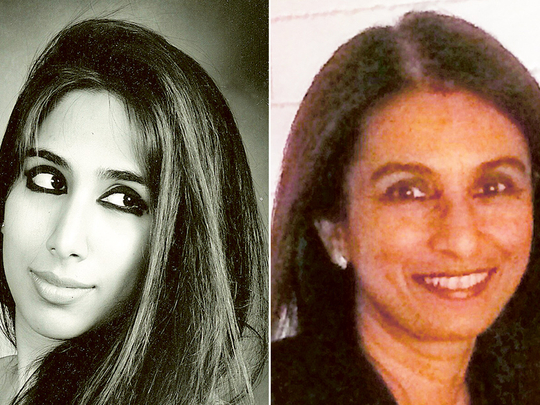
Dubai: While many people may have been struggling with juggling crazy working hours and their personal life, they may not realise that the concept of separating the two worlds may just be the problem.
According to clinical psychologist Dr Saliha Afridi, director of LightHouse Arabia in Dubai, the biggest challenge is the fact that people are still insisting on achieving a ‘work-life balance’.
“With technology, globalisation, and living in a place like Dubai that is in the middle of the world — thus serving the East and the West — professionals will never leave work at work and have a ‘life’ that is distinctively separate from their work,” she said.
For many people, the boundaries between work and home do not exist anymore.
With smartphones and laptops around, people have access to their work anywhere, everywhere and at all times, said Dr Afridi. “This wasn’t the case 30 years ago, when people left work, they left their work at work. I think to integrate work into a life that is whole, a life that considers family, health and community is something that we should be striving for,” she added.
Gulf News spoke with two working women in Dubai about the challenges they face when maintaining their work-life balance, and their personal tricks to help organise their time.
Separating the two
British-Indian Dr Daamini Shrivastav, 28, is a qualified medical doctor, PR and marketing director for Conceive Gynaecology & Fertility Hospital by day, and Pilates instructor and columnist in the evenings.
“I’m up at 7am. After a quick few minutes of walking the dog, feeding him and the cat, I hit the gym for a strenuous hour with my trainer. Then it’s a quick hot shower followed by breakfast and I finally begin ‘paid work’ at 9am,” said Dr Shrivastav.
She pointed out that she is often done with work at 4.30pm, which she follows with a 90-minute nap after which she teaches Pilates and writes a quick piece for her ‘DEBUNKED’ column in a ‘The Society Insider’ magazine.
“By the time I’m done with work, it’s about 10.30pm, which is when I take the dog out for a walk. Stroke of midnight, my head hits the pillow,” she added. To keep her days organised, Dr Daamini draws up elaborate charts and timetables complete with colour coding for all the aspects of Dubai living at the start of each month and week.
“I list out my goals and to-dos for the month ahead first and then break these down into weeks and finally segment them into hours of appropriate days,” she said.
The plan includes allocated sleep and exercise hours followed by predetermined Pilates teaching hours. “The other hours are dedicated to work for the hospital, meetings, article research and writing and for social frivolity. I do try to sneak in a dinner or social engagement every week with friends/family,” said Dr Shrivastav. She also signs off her week with an hourlong full body massage on Thursday evenings.
Dr Shrivastav said despite the fact that escaping a screen is not an option in this technological age, she tries to separate her work and personal life by not answering any work calls or emails after Thursday evening, and keeps two phones, one for personal use, and another for work calls. “My diary, exercise sessions, and pets are the three things I have that keep both worlds separate,” she added.
Work-life ‘a continuum’
Meanwhile, Indian Lakshmi Aima, an international HR business partner who works at a multinational company headquartered in the UK, said she works eight hours a day, 7am-4pm, on days when she is at the office.
Aima pointed out her job provides flexible hours and the option of working from home when dealing with sensitive projects and tight deadlines or across international timelines.
“This way, I also manage to avoid the stress of the daily commute. The workday really begins when we leave our homes not when we walk into office, and we often don’t realise the toll that things like gridlock take on our emotional and physical health,” said Aima.
She explained that over the years, work life and home life have blended into each other where “one doesn’t necessarily stop for the other to start”.
Working on projects and with a virtual team, Aima explained that in some cases, the volume of work requires her to work into what would normally be her out-of-office hours. “I also travel a significant amount, so any work-life balance goes out of the window,” she said.
Despite her busy schedule, Aima said she does not feel stressed about managing her work life and home life. “I manage to pack in a lot into a day and don’t feel I am missing out on anything. I work best under pressure, so having a tight schedule actually works in my favour,” she said.
Describing her work and personal life as a “continuum,” Aima prioritises her to-do list, and ends up doing what matters most during her day — both from a work front and from a personal point of view.
“I am all for work-life integration. Some part of one’s work is done through social media. Some of these platforms are used in our personal lives as well, so I’m not sure a rigid work-life separation is really practical anymore, said Aima.
Aima walks between 6km and 15km a day, and uses these walks to de-stress and settle any issues that have caused her stress during the day.
“I see work-life balance as being a state of mind. So long as one feels emotionally and physically stable, well rested and happy, it is all that should matter,” added Aima.








